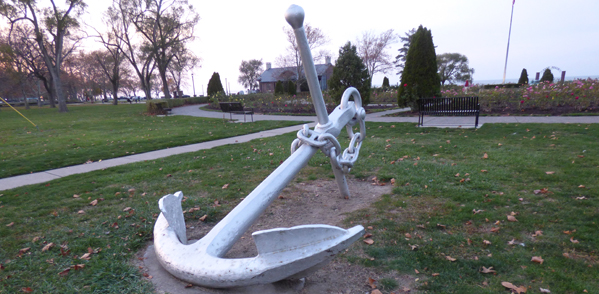Drama Triangle
Drama is often an inevitable consequence of unresolved trauma,
especially if we grew up on the drama triangle or had parents who were always on it.
We may have even lived our entire lives on the drama triangle.
There are 3 Roles on the Drama Triangle - Persecutor, Victim and Rescuer.
Each role starts off with an element of victimhood by blaming someone or something.
Victim blames and then collapses into a puddle of powerlessness.
Persecutor blames and then attacks.
Rescuer blames and then tries to fix.
Persecutors usually identify as victims (not persecutors), while Rescuers have a hard time ever seeing themselves as a victim.
It took me a while to see the Victim Thinking that preceded my Rescuing attempts, but eventually I became aware of
that split second where I felt like I had to fix something and had no choice.
A desire for safety is usually at the bottom of any role on the drama triangle, as well as one or more of the other basic needs.
It took me a while to see that underneath my kind, gracious, self-sacrificing Rescuing behavior there was always a selfish motive,
usually based on a need for safety or security of some kind.
Each role on the drama triangle is a defective strategy for trying to get our needs met
by using power, control, guilt, or shame to force others to meet our needs.
Therefore, each role on the drama triangle is violent, even the Victim.
(This is different from a true victim. For a deeper understanding of the differences, see the Signs of Victimhood below.)
Trying to force others to meet our needs is a sign of emotional immaturity.
Neutralizing anchors helps us achieve more emotional maturity.
On the drama triangle, we have positive intentions, but inevitably get negative results.
There are no limits on the drama triangle. Each role is done without healthy limits, which is unsustainable.
More than one person cannot occupy the same role on the drama triangle for very long.
One of them will push the other out into another role.
When one person switches roles, it can cause the other to switch roles, too.
We can go all around the triangle, occupying all 3 Roles, sometimes in a matter of minutes or seconds.
Victim
- Blames and then collapses into a puddle of powerlessness
- Feels incapable
- Tries to Guilt others into rescuing them
- Can act Entitled and Demanding
- Refuses to fill the love tank of another person. Wants the other person to fill theirs first.
- Invisible, Distant and Enmeshed Boundary Styles
- Hiding (Underearner Behavior)
Persecutor
- Blames and then attacks
- Tries to Shame others into falling into line
- Can be Entitled and Demanding
- Confrontational
- Tries to Make People Do Something (including understand)
- Intrusive & Rigid Boundary Styles
- Biting (Underearner Behavior)
Rescuer
- Blames and then fixes
- Pathologically Helpful
Helping in ways others do not want to be helped
Not listening for the true feelings and needs of other people - Denies own feelings and needs
Puts own needs on the back burner
May not even be aware of having needs - Lack of Self-Care
- Expresses love in their own love language instead of in the primary love language of the other person
- Intrusive, Enmeshed and Hyper-Receptive Boundary Styles
- Educating
With which of these roles do you most strongly identify?
When was the first time you ever played that role?
Are you powerless to stop? Is it making your life unmanageable?
(NOTE: There is a 12-Step Fellowship that addresses all 3 roles on the drama triangle -
violenceanonymous.org)
Signs of Victimhood
I used to be stuck in victim mentality.
But when someone told me that (a long time ago), I didn't understand what they meant, and my feelings were deeply hurt.
I felt misunderstood and abandoned by that person.
After neutralizing anchors for the better part of a year,
I suddenly started becaming aware of my victim thinking and realized
it was happening on a daily basis, sometimes many times a day.
It definitely happened whenever I got into a car and out onto the roads.
(All those reckless drivers out there endagering everyone's lives!)
Lynne Forrest talks about 7 Signs of Victimhood.
Do you identify with any of them?
- Blaming
Blaming others
Blaming self - Victim Vocabulary
No fair!
I cannot handle it. - Complaining/Whining
My boss sucks.
Things should not be this way. - Judging, Criticizing
They are stupid.
I am so stupid! - Compare & Despair (self to others)
I will never be as good as them.
I will never have what they have.
I cannot speak as well as everyone else, so I should not say anything at all. - Constant Melodrama
- Negative Emotions
Anger (Resentment, Rage, Irritation, Annoyance)
Grief (Sadness, Hurt)
Fear (Worry, Anxiety, Terror, Dread)
Guilt is a feeling often derived from the thought that we have crossed our own moral line of conduct.
Shame is a feeling generated from thoughts of inadequacy stemming from past trauma. Perpetrators will often project their shame onto their victims, and then the victim ends up carrying that shame with them unknowingly.
Embarrassment can be so painful it can trigger us onto the drama triangle and drive us to act out using various forms of power and control. Awareness of the feeling can allow us to turn our focus toward clarifying our needs.
What need(s) are you trying to meet by indulging in any of these behaviors?
Do you know anyone, who has spent their entire life stuck in any of these Signs of Victimhood?
What does their life look like?
I view each of these signs of victimhood that is active as an inevitable consequence of unresolved childhood trauma.
